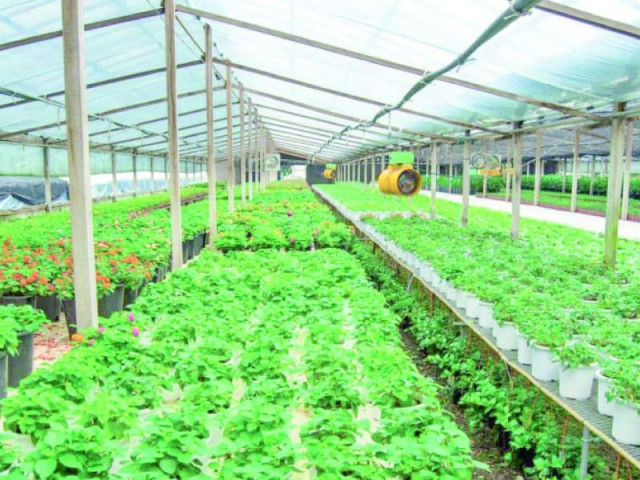Experts push for corporate farming
Advocate strategic shifts to boost crop yields, subsidies to farmers

Industrialists and progressive growers have described corporate farming as a positive initiative aimed at revamping and promoting the agriculture sector of the country. They advocate for establishing market prices for seeds, urea, pesticides, and agricultural commodities, alongside providing subsidies to farmers.
Speaking to The Express Tribune, they highlighted the adverse impact of rising production costs and fluctuating crop prices on farmers’ livelihoods and the government’s reputation, emphasising the need for immediate attention to mitigate these challenges. They stressed the necessity for a green revolution to drive agricultural development in Pakistan, advocating for strategic crop selection based on land suitability.
With the ongoing decline in international wheat prices, they urged a shift towards cultivating commodities that Pakistan typically imports, such as palm oil, while also recommending a halt to sugarcane cultivation due to its high water consumption. Redirecting resources towards cultivating other valuable food crops, including cotton, was proposed as a proactive measure.
They advocated for policies, including the agriculture development policy, to be crafted and executed at the state level, highlighting their stability and credibility even among international organisations. By decentralising policymaking, continuity can be ensured, independent of changes in government leadership within the country.
Read: 10-km protest march held against corporate farming
Hyderabad Chamber of Small Traders and Small Industry (HCSTSI) President Muhammad Farooq Shaikhani lauded the federal government’s initiative in crafting a corporate farming policy aimed at advancing Pakistan’s agriculture sector, deeming it commendable. He called for formulating national seed and agriculture development policies to facilitate corporate farming in the country. Highlighting the landscape of land ownership in Pakistan, Shaikhani said without robust data collection, the policy may inadvertently favour large landowners, thereby neglecting smaller cultivators and perpetuating disparities. He said Pakistan’s significant agricultural potential, with 40% of its land being flat and cultivable, could effectively address the nation’s food crisis. He advocated for the adoption of international farming technologies, including researched seeds, high-quality pesticides, urea, and modern machinery, to substantially increase crop yields.
Hyderabad Chamber of Commerce and Industry (HCCI) President Adeel Siddiqui said it bodes well to make wasteland cultivable and productive through corporate farming. Instead of inviting foreign investors, local investors should be invited first to take land and make investments.
There is a complex situation regarding this newly crafted corporate policy, and the government must provide a clear-cut policy and guidelines about it, as local industrialists-cum-investors are concerned about the availability of water to irrigate agricultural lands, he said. If the government and the Special Investment Facilitation Council (SIFC) successfully dispel water concerns of potential local investors, it would be a far more successful story, as the agriculture-based economy can win more laurels in the near future.
“Approximately 82% of landholding in Sindh pertains to a maximum of 16 acres of agricultural lands, which means mostly landlords in the province own lands varying from five acres to 16 acres. Another 18% of landholding is owned by big landlords who have lands from 20 acres to 200 acres and above. Corporate farming is suitable for state lands that spread over thousands of acres. Cooperative farming suits the private sector, as there are lands in pockets from five to 16 acres,” Chamber of Agriculture (SCA) Senior Vice President Nabi Bux Sathio said.
He added that three provincial public entities, including Sindh agriculture and livestock departments, and Sindh Agriculture University (SAU), possess around 50,000 acres of agricultural lands, stating that it would be useful to utilise agricultural lands of the public departments for corporate farming. If these lands are deployed or used, it could definitely meet quality, cheap, and appropriate seed requirements of the entire province, while strengthening the food security of Sindh.
Published in The Express Tribune, March 19th, 2024.
Like Business on Facebook, follow @TribuneBiz on Twitter to stay informed and join in the conversation.


















COMMENTS
Comments are moderated and generally will be posted if they are on-topic and not abusive.
For more information, please see our Comments FAQ